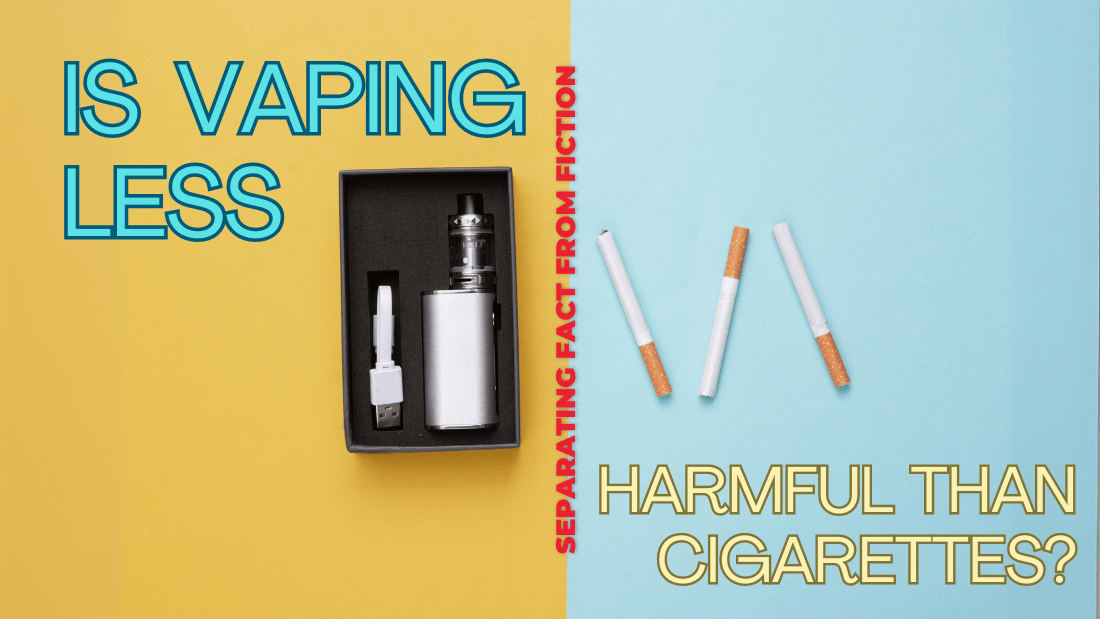
Is Vaping Less Harmful Than Cigarettes? Separating Fact from Fiction
Is Vaping Less Harmful Than Cigarettes? Separating Fact from Fiction
The debate surrounding vaping and its health implications has become increasingly complex and contentious. While vaping has been marketed as a safer alternative to traditional cigarettes, the scientific evidence is still emerging, and the long-term effects remain uncertain. This article aims to provide a comprehensive overview of the current scientific understanding of vaping, addressing the question of whether it is indeed less harmful than cigarettes.
Understanding the Risks of Vaping
Vaping involves inhaling an aerosol produced by heating a liquid that typically contains nicotine, flavorings, and other chemicals. While it eliminates the combustion process present in cigarettes, which produces harmful tar and carbon monoxide, vaping still poses a range of health risks.
1. Nicotine Addiction
Nicotine, a highly addictive substance found in both cigarettes and vaping liquids, is a primary concern. Vaping can lead to nicotine addiction, particularly in adolescents and young adults, whose brains are still developing. Nicotine addiction can have severe consequences, including impaired brain development, cardiovascular problems, and increased risk of other substance abuse.
2. Lung Damage
Research has shown that vaping can cause lung damage, even in the absence of nicotine. The heated aerosol contains various chemicals, including heavy metals, volatile organic compounds, and ultrafine particles, which can irritate and inflame the lungs. In some cases, vaping has been linked to serious lung injuries, such as EVALI (e-cigarette or vaping product use-associated lung injury).
3. Cardiovascular Health
While vaping may reduce some of the cardiovascular risks associated with smoking, studies have shown that vaping can still negatively impact heart health. Nicotine from vaping can raise blood pressure and heart rate, increasing the risk of heart disease and stroke.
4. Other Health Risks
The long-term effects of vaping are still being investigated, but research suggests potential risks to the immune system, oral health, and reproductive health. Additionally, the presence of various chemicals in vaping liquids raises concerns about their impact on the body.
Comparing Vaping to Cigarettes
It is generally accepted that vaping is less harmful than smoking cigarettes. However, it is crucial to understand the nuances of this comparison:
1. Reduced Exposure to Harmful Compounds
Vaping eliminates the combustion process, resulting in significantly lower levels of harmful compounds like tar, carbon monoxide, and polycyclic aromatic hydrocarbons found in cigarette smoke.
2. Potential for Harm Reduction
For smokers who are unable or unwilling to quit entirely, vaping can offer a potential harm reduction strategy. By providing nicotine without the combustion process, it may reduce exposure to some of the most harmful substances in cigarettes.
3. Not Entirely Safe
While vaping may be less harmful than cigarettes, it is not risk-free. The presence of nicotine and other chemicals in vaping liquids still poses significant health risks, and the long-term effects remain unknown.
Conclusion
The question of whether vaping is less harmful than cigarettes is complex and requires careful consideration. While vaping may offer some advantages over cigarettes, it is not a harmless alternative. The scientific evidence is still emerging, and the long-term effects of vaping are unknown. It is essential to approach vaping with caution and prioritize harm reduction strategies that do not involve nicotine use.
For individuals who are considering vaping, consulting a healthcare professional is crucial to discuss the potential risks and benefits. The decision to vape should be made after carefully weighing the evidence and understanding the potential consequences.
Ultimately, the most effective way to protect your health is to avoid using both cigarettes and vaping products. Quitting smoking or vaping completely is the safest option and offers the greatest health benefits.









